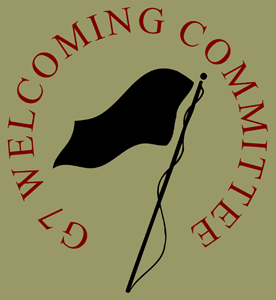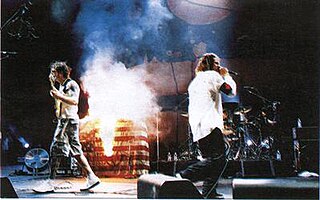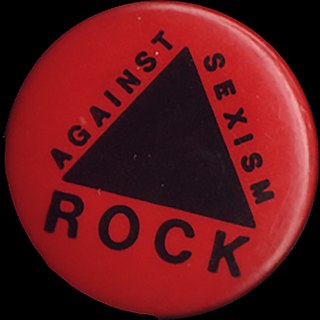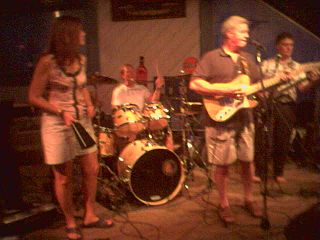 W
WDeadheads for Obama is the name given to the February 4, 2008 reunion concert of three former members of the Grateful Dead at The Warfield in San Francisco. The show, performed one day before the Super Tuesday primary elections, was an act of support for Democratic presidential candidate Barack Obama, and featured former Dead members Phil Lesh, Bob Weir, and Mickey Hart, as well as John Molo, Jackie Greene, Steve Molitz, Mark Karan and Barry Sless.
 W
WAt a 2003 performance in London, Natalie Maines of the American country band the Dixie Chicks, now known as the Chicks, made a statement criticizing President George W. Bush and the imminent Allied invasion of Iraq. Maines said the band was ashamed to be from the same state as Bush and that they did not support the war.
 W
WEwigkeit is the musical project of English artist James Fogarty aka Mr. Fog from Brighton. Having released five studio albums, on 28 March 2007, Fogarty announced the end of the project on Blabbermouth, the Death To Music website and also on Myspace but revived it in 2012.
 W
WG7 Welcoming Committee Records was a Canadian independent record label based in Winnipeg, Manitoba. The label mostly released material by artists and speakers with a radical left-wing point of view.
 W
WMP4 is a rock band made up of three current and one former British Members of Parliament.
 W
WThe apartheid regime in South Africa began in 1948 and lasted until 1994. It involved a system of institutionalized racial segregation and white supremacy, and placed all political power in the hands of a white minority. Opposition to apartheid manifested in a variety of ways, including boycotts, non-violent protests, and armed resistance. Music played a large role in the movement against apartheid within South Africa, as well as in international opposition to apartheid. The impacts of songs opposing apartheid included raising awareness, generating support for the movement against apartheid, building unity within this movement, and "presenting an alternative vision of culture in a future democratic South Africa."
 W
WThe Orrin G. Hatch–Bob Goodlatte Music Modernization Act, or Music Modernization Act or MMA is United States legislation signed into law on October 11, 2018 aimed to modernize copyright-related issues for music and audio recordings due to new forms of technology such as digital streaming. It is a consolidation of three separate bills introduced during the 115th United States Congress.
 W
WThe culture of Portugal is a very rich result of a complex flow of many different civilizations during the past millennia. From prehistoric cultures, to its Pre-Roman civilizations, passing through its contacts with the Phoenician-Carthaginian world, the Roman period, the Germanic invasions of the Suebi, Buri and Visigoths, Viking incursions, Sephardic Jewish settlement, and finally, the Moorish Umayyad invasion of Hispania and the subsequent expulsion, during the Reconquista, all have made an imprint on the country's culture and history.
 W
WNoise: The Political Economy of Music is a book by French economist and scholar Jacques Attali concerning the role of music in the political economy.
 W
WThe Public Dance Halls Act 1935 is an Act of the Oireachtas which regulates dance halls in Ireland by introducing a licensing system and a tax on admission tickets.
 W
WRage Against the Machine is an American rock band formed in Los Angeles in 1991. The band's line-up consists of vocalist Zack de la Rocha, bassist and backing vocalist Tim Commerford, guitarist Tom Morello and drummer Brad Wilk. Critics have noted Rage Against the Machine for its "fiercely polemical music, which brewed sloganeering left wing rants against corporate America, cultural imperialism, and government oppression into a Molotov cocktail of punk, hip-hop, and thrash." Their opposition to authority relates to the band's left-wing political beliefs stemmed in political reform without corporate influence.
 W
WDean Cyril Reed was an American actor, singer and songwriter, director, and social activist who lived a great part of his adult life in South America and then in East Germany. Nicknamed the Red Elvis, Reed was the best-selling Western performer in Communist countries, with his songs often topping the local charts, and millions of his records were sold in the Eastern bloc and elsewhere mostly under the Melodiya label. He never renounced his U.S. citizenship and always claimed his life-long faithfulness to the United States albeit often denouncing the U.S. government, and was seen by the Western media as a Communist propaganda beacon.
 W
WRock Against Sexism (RAS) was a political and cultural movement dedicated to promoting women in music, and challenging sexism in the rock music community, pop culture and in the world at large. It was primarily a part of the punk rock music and arts scene.
 W
WLeon Rosselson is an English songwriter and writer of children's books. After his early involvement in the folk music revival in Britain, he came to prominence, singing his own satirical songs, in the BBC's topical TV programme of the early 1960s, That Was The Week That Was. He toured Britain and abroad, singing mainly his own songs and accompanying himself with acoustic guitar.
 W
WScritti Politti are a British band, originally formed in 1977 in Leeds, England, by Welsh singer-songwriter Green Gartside. He is the only member of the band to have remained throughout the group's history.
 W
WThe Second Amendments was a bipartisan conservative rock/country/country rock band, all of the members of which were also members of the United States House of Representatives. It featured Representatives Collin Peterson (DFL-Minnesota) on guitar and lead vocals, Thaddeus McCotter (R-Michigan) on lead guitar, Dave Weldon (R-Florida) on bass, Jon Porter (R-Nevada) on keyboards, and Kenny Hulshof (R-Missouri) on drums. The band broke up after the 2008 elections when two of its members, Hulshof and Weldon, retired, and Porter lost his reelection bid.
 W
WProtests during the playing of the United States national anthem have had many causes, including civil rights, anti-conscription, anti-war, anti-nationalism, and religious reservations. Such protests have occurred since at least the 1890s, well before "The Star-Spangled Banner" was adopted and resolved by Congress as the official national anthem in 1916 and 1931, respectively. Earlier protests typically took place during the performance of various unofficial national anthems, including "My Country, 'Tis of Thee" and "Hail, Columbia". These demonstrations may include refusal to stand or face the American flag during the playing of the Anthem.
 W
WSince August 2016, some American athletes have protested against police brutality and racism by kneeling on one knee whilst the U.S. national anthem is played. Beginning in 2017, many players also protested against President Donald Trump's criticisms of those involved in the protest, and some against Trump's policies during his time in office. Some observers have described the protests as politically motivated and/or patriotic and have praised the players' social awareness, while others have criticized giving attention to social issues during sporting events, and called the protests unpatriotic or disrespectful. The act itself has become widely referred to as "taking the knee" or "taking a knee".